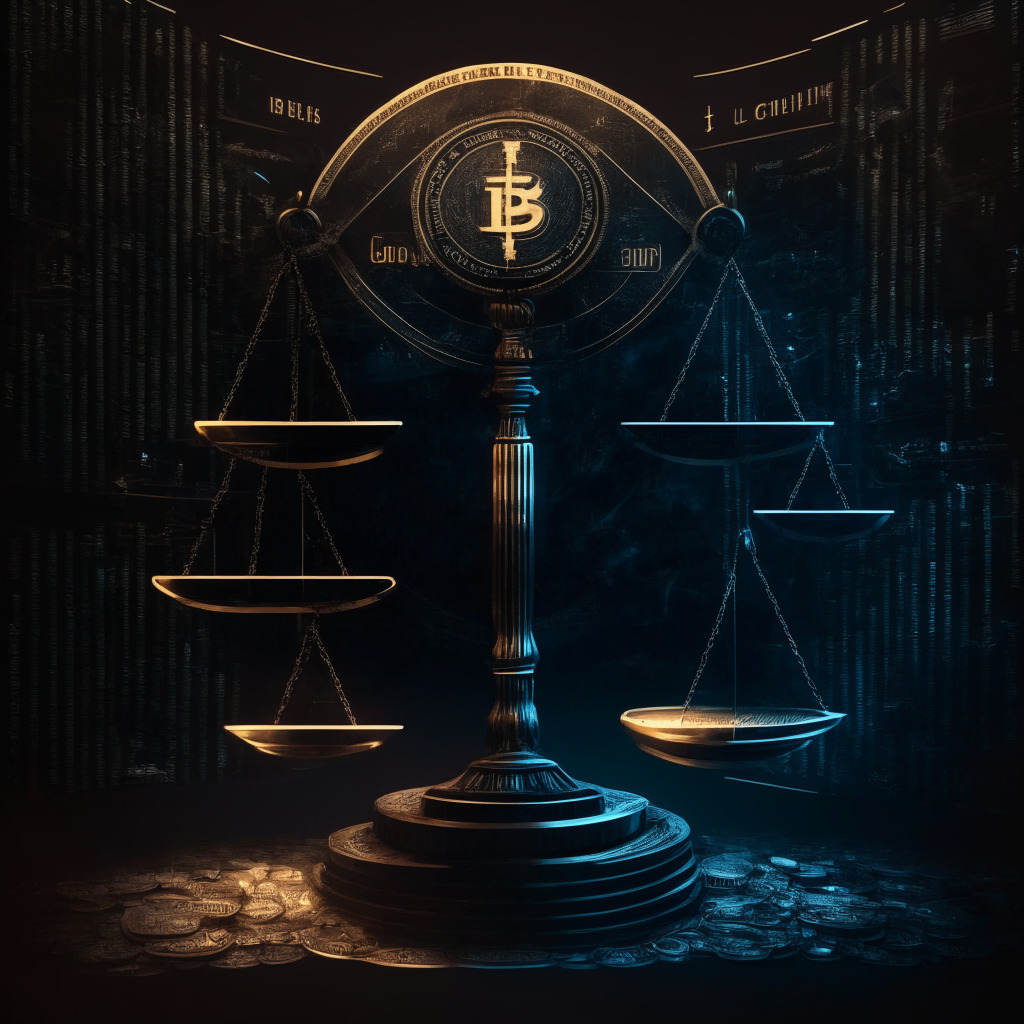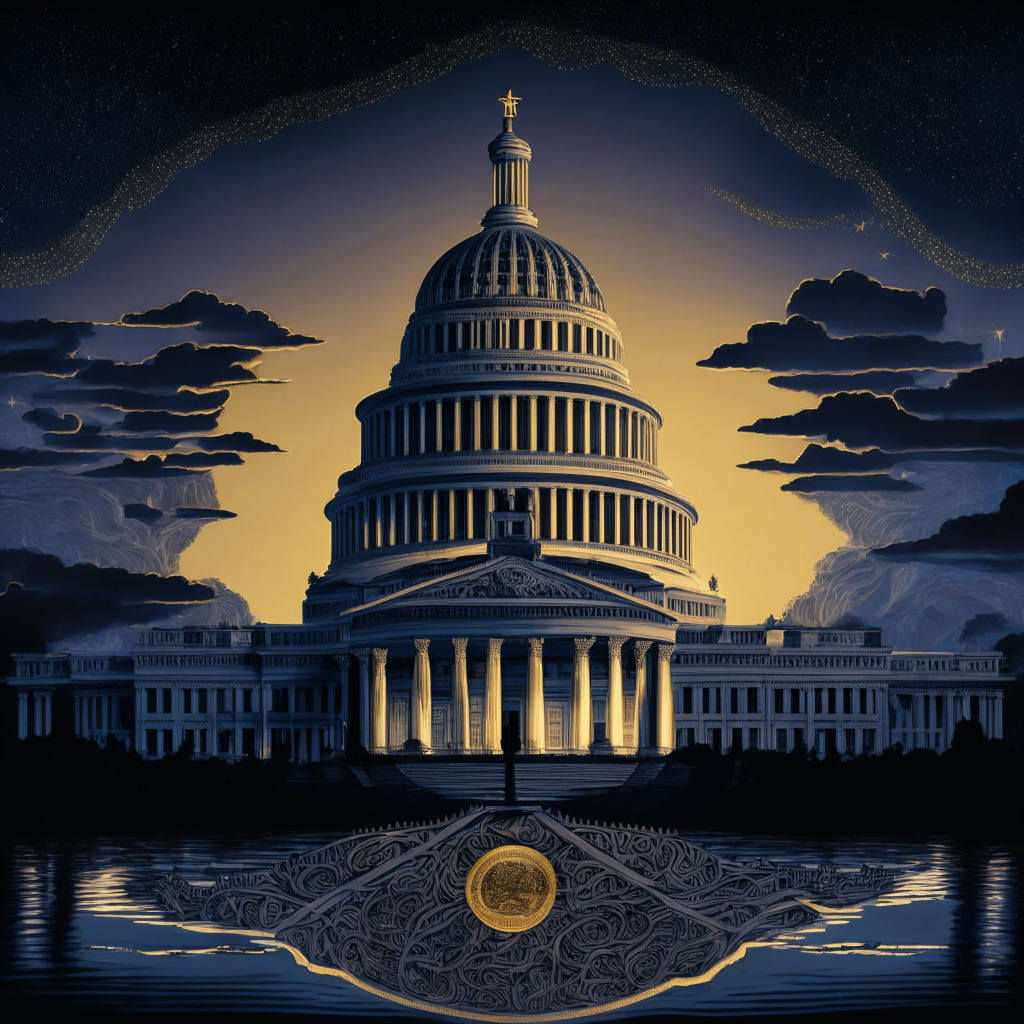Antonio Juliano, founder of dYdX, suggests crypto developers should shift their focus from the convoluted U.S. regulatory environment to friendlier overseas markets for the next five to ten years. His perspective sheds light on the industry perception that U.S. lacks definitive digital asset regulations. However, views differ, with some believing that despite current regulatory obscurity, pioneers can seek clarity and establish a safe, legal operating ground in the U.S.
Search Results for: Crypto Regulations
Navigating the Tides: US Treasury’s Proposed Crypto Regulations Stir Debate
The US Treasury and IRS propose new regulations making digital asset brokers accountable for reporting certain sales and exchanges. This move aims to simplify tax calculations, bring digital asset tax reporting on par with securities, and prevent tax evasion. Critics, however, see this as an attempt at excessive government control, potentially stifling the growth of decentralization and web3 adoption.
Mastercard Ends Crypto Card Partnership with Binance: An Insight into Evolving Crypto Regulations
Mastercard has announced the termination of its cryptocurrency card partnership with Binance amid increased regulatory scrutiny of the cryptocurrency exchange. This decision, however, does not affect Mastercard’s other crypto card partnerships and highlights the evolving landscape of crypto regulations.
Navigating the Regulatory Waters: An In-Depth Look at Crypto Regulations and Their Impact
Former FTX CEO, Sam Bankman-Fried, has been given unique access to his legal team amid a controversial criminal case. The move reflects potentially changing attitudes towards the crypto sector. Despite increasing regulation scrutiny, some argue this could shape a more secure and robust crypto ecosystem.
Navigating the Tightrope: Rising Crypto Regulations vs. Innovation in the Wake of the Bankman-Fried Saga
Former FTX CEO, Sam Bankman-Fried faces multiple fraud charges, currently under stricter regulations. Pending trials, he’s granted a one-time concession for a meeting outside jail. The saga points to the larger issue of regulatory impacts on crypto firms like Coinbase and Circle globally.
Coinbase Halts Trading of Stablecoins Amid Tough Crypto Regulations in Canada
Coinbase, a major cryptocurrency exchange, announces the suspension of trading for three popular stablecoins in Canada starting from August 31. Despite the trading halt, the wallets will still be functional for deposits and withdrawals. However, Canada’s stern stance towards crypto service providers and stringent regulations have led to many crypto exchanges, including Binance and OKEx, pulling out from the Canadian market.
UK Crypto Regulations Pinch But Promise Market Integrity: The FATF Travel Rule Unpacked
Starting September 1, UK crypto businesses will follow the Financial Action Task Force’s Anti-Money Laundering and Counter-Terrorist Financing regulations, including the ‘Travel Rule’. This may increase operations and marketing costs, but aims to prevent fraud and enhance customer protection in the crypto market.
Landmark Ripple Ruling Reignites Debate Over Crypto Regulations & Financial Autonomy
Judge Analisa Torres gives green signal to U.S. Securities and Exchange Commission (SEC) to challenge her ruling that Ripple’s XRP isn’t breaching security laws. This move spotlight discussion about crypto regulations and the governance of digital assets by conventional financial laws.
Ripple Fights the SEC’s Interlocutory Appeal: Kraken Thrives Amid Canadian Crypto Regulations
“Ripple Labs has countered the U.S Securities and Exchange Commission’s (SEC) intent for an appeal over a summary judgment. Ripple’s attorneys dispute the SEC’s ability to meet the Howey test elements, requesting for dismissal of the appeal. Meanwhile, the Canadian cryptocurrency exchange, Kraken, complies with requirements amid regulatory obstacles.”
Cross-Border Crypto Regulations: A Comparative Study between the US and Canada
“Jeremy Koven, president of CoinSmart, discusses the differential path of crypto regulations in various countries, emphasizing the clarity in Canada compared to the fragmentation in the US regulatory landscape. This perspective highlights regulatory hurdles possibly hindering US crypto growth.”
The High-Stakes Case of Sam Bankman-Fried: A Blinking Red Light for Crypto Regulations and Ethics
The high-profile case of Sam Bankman-Fried, co-founder of FTX, highlights the need for stricter regulation and greater accountability in the crypto industry. Allegations regarding fraudulent operations at FTX raise concerns about the ethics and legality of certain practices in the crypto sphere.
The Battle Ignites: Crypto Guru Sam Bankman-Fried’s Legal Rollercoaster and What This Means for Crypto Regulations
“Crypto markets face uncertainty as FTX’s founder, Sam Bankman-Fried faces legal tensions with US DoJ regarding campaign finance and wire fraud allegations. The unfolding drama could present different outcomes potentially impacting crypto regulations and setting precedents for future crypto-related legal confrontations.”
Bittrex’s $24m Settlement: Unveiling Stringent Crypto Regulations and Its Impact on Market Norms
“Cryptocurrency exchange Bittrex agreed to pay a $24 million fine for providing U.S. investors with access to unregistered securities. The SEC is showing a spirited pursuit against similar allegations on other exchanges. This emphasizes the emerging stringent regulatory landscape in the crypto space, highlighting the considerable regulatory risks even amidst notable opportunities.”
Crypto Regulations Tighten: Mashinsky’s Trial and the Controversial Role of Stablecoins
Former Celsius CEO, Alex Mashinsky, is restricted in his financial operations and movement due to charges related to cryptocurrency fraud. Meanwhile, stablecoins are being discussed as a way to ensure US dollar’s global dominance, while critics warn of potential instability. The crypto and blockchain world continues to struggle for legitimacy and stability.
UK Crypto Regulations: Ensuring Consumer Protection or Stifling Innovation?
CryptoUK has expressed concerns over potential cryptocurrency incentives prohibition that might lead businesses to move their operations away from the UK. The FCA’s new guidelines on crypto promotions, expected to be effective from October 8, have stirred apprehensions amidst concerns of limiting innovation and business growth.
Regulatory Tango: Analysis of the SEC Vs. Ripple Labs and Future Implications on Crypto Regulations
The ongoing case between the SEC and Ripple Labs involves a potential $1.3 billion unregistered securities offering. Recently, Judge Analisa Torres ruled that Ripple’s XRP sales didn’t qualify as securities offerings. However, the SEC plans to appeal this decision, indicating the complex and evolving landscape of blockchain regulation.
FTX Digital Markets Scandal: The Tightrope of Crypto Regulations & Need for Decentralization
“FTX Digital Markets’ co-director, Ryan Salame, is negotiating a potential guilty plea regarding criminal charges stemming from the downfall of the cryptocurrency exchange. Salame is accused of violating campaign finance laws, posing questions about the future of blockchain technology and the need for stringent regulations within the platform.”
Binance’s Chinese Operations Allegations: Unraveling the Complexities of Global Crypto Regulations
Recent allegations suggest Binance, the leading cryptocurrency exchange, possibly continued operations in China despite the country’s ban on cryptocurrencies. Reports claim large-scale business deals ensued, despite Binance denying access to China-based users. These allegations raise important considerations about global crypto markets, regulatory frameworks, and the necessity of abiding by individual nation’s financial regulations.
India’s Place in Outlining International Crypto Regulations: Innovation or Instability?
India, currently leading the G20, reveals strategic notes on cryptocurrencies in preparation for global regulations. The initiative, involving cooperation from IMF and FSB, marks India proposing rules for crypto. The gist, expected in August, aims to highlight potential risks of the crypto world in emerging markets.
Global Ripple Effect of Crypto Regulations: Innovation versus Protection
The article focuses on recent developments related to crypto legislation, controversy surrounding Worldcoin’s data collection practices, Russia’s progress with a central bank digital currency, and Binance retracting its crypto custody license application in Germany. The central issue revolves around the challenge of balancing innovation and public protection in international blockchain regulation.
Unlikely Alliances and Divisive Lines: When Crypto Regulations Meet Freedom of Decentralization
The Bank Policy Institute (BPI) sides with Senator Elizabeth Warren to tighten cryptocurrency regulations via the Digital Asset Anti-Money Laundering Act, causing contention with crypto veterans. The bill requires enhanced surveillance and customer identity tracking, while banning digital asset mixers in efforts to prevent illicit activities. This raises questions about the balance between regulation and market freedom in cryptocurrencies.
U.S. Senate Tightens Crypto Regulations in NDAA 2024: A Necessity or Threat to Blockchain Freedom?
The U.S. Senate’s passage of the 2024 National Defense Authorization Act introduces tighter regulations for financial institutions engaged in crypto trading, marking a significant legislative shift. The bill targets crypto mixers and “anonymity-enhancing” crypto assets and aims to strengthen compliance with money laundering and sanctions laws.
Legal Clash in US Crypto Regulations: Republicans and Democrats Weigh In
The House Financial Services Committee advances two crypto-related bills aimed to address blockchain-related dilemmas and establish a solid legal framework. Despite opposition, proponents claim these bills will prevent the U.S.’s lag in crypto regulation and provide clarity within the digital asset industry. However, skeptics express concern over potential diminished investor protection and misuse of power imbalance.
Navigating Privacy and Security Paradox: Meta’s Missteps and Crypto Regulations Unveiled
“South Korea strengthens the regulatory environment surrounding cryptocurrencies by setting up an interagency investigative unit to combat crypto-related crimes. However, as cryptocurrencies promise greater freedom, they also attract criticism for providing cover for potential fraud and other illicit activities.”
Namibia Embraces Crypto Regulations: A Breakthrough or a Setback?
“Namibia has signed a law regulating Virtual Asset Service Providers, reversing its 2017 ban on crypto exchanges. The law aims to enhance consumer protection, curb market abuse, and mitigate money laundering and terrorism financing risks. However, severe penalties apply for non-compliance and cryptocurrencies still hold no legal tender status in Namibia, potentially creating a hostile environment for crypto businesses.”
Binance’s Audacious Stand Against U.S. CFTC: A Game-Changer for Crypto Regulations
“Cryptocurrency exchange, Binance, plans to challenge the U.S. Commodity Futures Trading Commission’s lawsuit against it over alleged illegal activities. This audacious move may change the landscape of cryptocurrency regulation within the U.S., setting precedent for future cases and influencing the future of cryptocurrency market.”
Navigating the Balance Beam of Ambiguity: Crypto Regulations and the Ripple Effect
“An established regulatory framework is crucial for blockchain’s mainstream acceptance and institutional integration. However, recent US court rulings, like Ripple Labs case, haven’t provided clear implications, making the path to comprehensive regulation and understanding of digital assets complex.”
Navigating the Market Quagmire: Bitcoin Volatility and Crypto Regulations Unveiled
Bitcoin hovers near $30,000 amidst caution due to XRP’s legal case, possible SEC appeal, and anticipated US government sell-off. However, institutional backing and substantial liquidity around $24,300 offer hope. Regulatory changes are also influencing the markets, with different regions adopting varying favorable stances towards crypto businesses.
Shutting Down of Coinbase Borrow Program: Reflecting on Crypto Regulations and Demand
Coinbase is downsizing its Borrow program, a service offering fiat loans up to $1 million for 30% of users’ Bitcoin holdings. This could signal a shift in Coinbase’s operations as the company faces increased scrutiny from U.S. regulators. The end of Coinbase Borrow could reflect the industry’s response to regulatory pressures, or Coinbase’s strategic focus on products that customers highly value.
Navigating the Murkiness of Crypto Regulations: The Verdict on XRP and the Unfolding Impact on Bitcoin and Ether
“A U.S. judge ruled that XRP is not a security, and BlackRock’s Bitcoin ETF reached the next approval stage, boosting XRP’s price. This and the acceptance of crypto in retirement portfolios pose more regulatory uncertainties, possibly affecting Bitcoin, Ether, and altcoin prices and trade volumes. Despite 2022’s crypto turbulence, H1 2023 saw a reversal led by Bitcoin, with notable shifts in option market activity and increased focus on crypto-specific news. Ethereum’s classification remains uncertain, potentially impacting the market’s move towards higher beta altcoins.”
UK’s Stance on Crypto Regulations: Ensuring Market Safety versus Fostering Innovation
Nikhil Rathi, CEO of Financial Conduct Authority (FCA), highlighted that despite the size of crypto firms, their commitment to strict regulatory scrutiny remains unchanged. With over 300 applications in two years, only 42 received approval due to adherence to anti-money laundering regulations.
Ripple’s Partial Victory and the Complex Dance of Crypto Regulations: A Regulatory Tug-of-War
“The Ripple’s XRP token case indicates the evolving complexities in blockchain regulations, with the token classified as a non-security for digital asset exchanges but not for institutional investors. This dual classification signifies future regulatory challenges, but also presents opportunities for increased investor protection and transparency in the crypto sector.”































